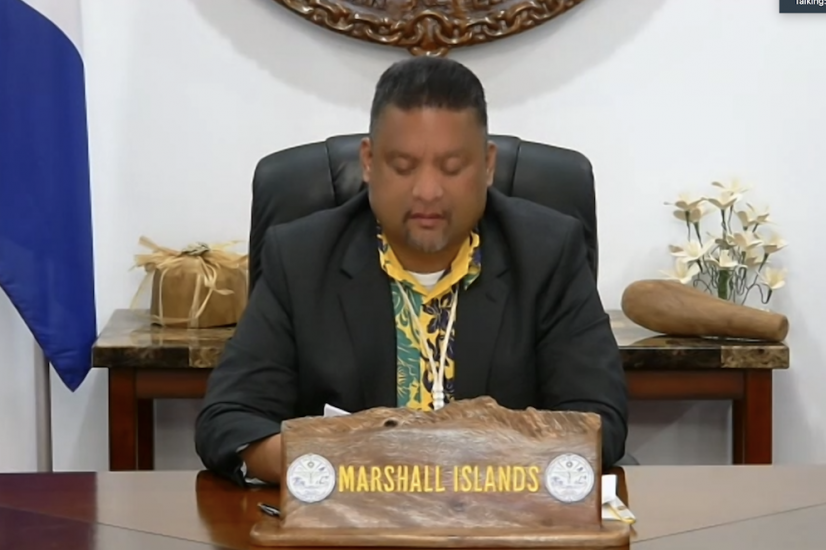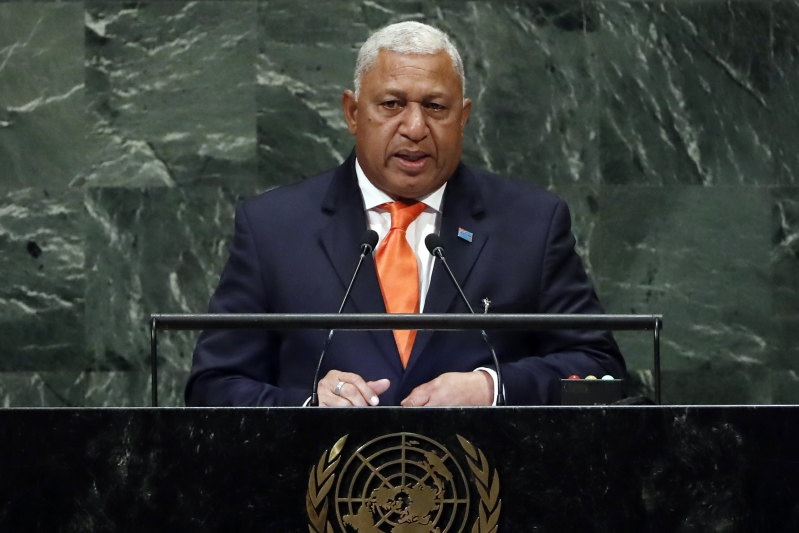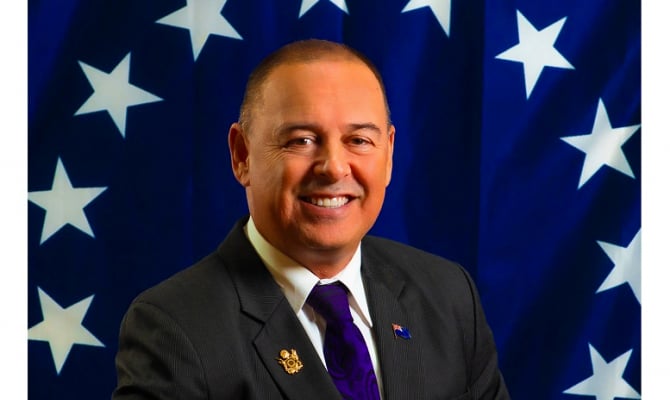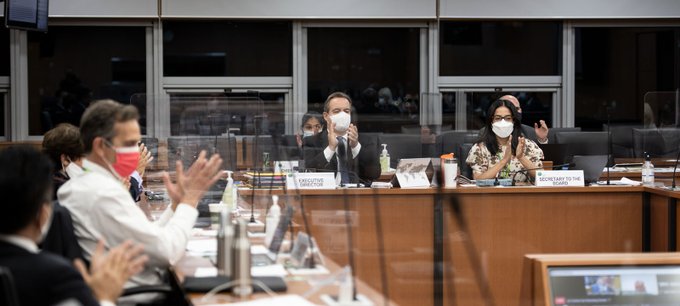Pacific governments outline key priorities to address the climate crisis ahead of crucial UN Climate Change Conference
Eight Pacific island nations of the Climate Vulnerable Forum (CVF) have adopted a regional communique with a set of 16 recommendations to address the regions’ most urgent climate change policy priorities at the conclusion of the CVF Pacific regional dialogue, held virtually from 01-3 September.
The dialogue was the third in a series of regional to global conversations that aims to build momentum ahead of the crucial United Nations Climate Change Conference in Glasgow. The event was co-hosted by Bangladesh, in its role as CVF Chair, and the Marshall Islands, and organised in cooperation with the Global Centre on Adaptation.
“The urgency for action has never been greater following the stark findings of the first working group of the Intergovernmental Panel on Climate Change’s (IPCC) 6th Assessment Report of August 2021, indicating that global heating was occurring faster than the IPCC concluded in 2018, with devastating consequences for people everywhere but especially those most vulnerable,” the communique states.
“The world must act. In particular, we need to see action on the climate emergency at COP26 with a clear pact for ambition and finance delivery in global solidarity.”
Among the recommendations that the Pacific nations have adopted is a call for an “end to the international financing of coal plants and a shift in finance and investment to renewable energy projects”, as well as, the establishment of a dedicated Special Rapporteur on human rights and climate change to the Human Rights Council.
The communique was endorsed during the High-Level Ministerial segment of the three-day forum by participating governments from Fiji, Kiribati, the Marshall Islands, the Federated States of Micronesia, Palau, Samoa, the Solomon Islands, and Vanuatu.
These countries are at the frontline of climate change impacts, with sea level rise, droughts, flooding, salt water intrusion, cyclones and ocean acidification causing significant difficulties to the livelihoods of their peoples.
“The regional dialogue creates a space for climate vulnerable countries to deliberate on regional policy concerns outside of the formal United Nations negotiation channels, as well as for other stakeholders to participate in these discussions,” Selamawit Desta Wubet, the CVF programme coordinator, said.
The findings from all the CVF regional dialogues in the Pacific, Latin America and Caribbean, and Africa and Middle East, and Asia will be reviewed at the CVF Senior Officials meeting hosted by Bangladesh in October, where the regions will finalise a “Dhaka-Glasgow Declaration” of the CVF that is expected to be adopted at the CVF High Level Meeting at COP26.
The CVF Pacific members agreed on the following priority areas; 1) delivery plan of the annual US$100 billion, 2) greater ambition from major emitters, 3) imperative of new and additional financing, 4) carbon markets, 5) loss & damage, 6) further means of implementation, 7) adaptation, 8) marine GHG emissions, 9) maritime zones, 10) oceans, 11) no new coal, 11) worker protection & jobs, 12) displacement & migration, 14) human rights, 15) parliaments, and 16) environment.
Kathy Jetnil-Kijiner, Climate Envoy, Marshall Islands and CVF Thematic Ambassador for Culture: “1.5 [degrees] is a priority in this communique – and it is a personal priority for us in the Marshalls as well. Our mandate as islanders is to keep 1.5 at the forefront of our discussions – as a marker and an aim that ensures our safety, as well as the safety of all frontline communities around the world.”
Dr Mahendra Reddy, Fiji’s Minister for Agriculture, Waterways and Environment: “As we head to COP26, we must work to ensure that our strong and effective collaboration on our climate threatened nation cannot be forged and serve to promote more robust, equitable and responsible action by the international community as well as enhance finance technology support for our national efforts to overcome our climate change-related challenges.
Bruno Leingkone, Vanuatu’s Minister of Climate Change and Adaptation: “The global climate action discussions of mobilising US$100 billion per year by 2020 to address the needs of developing nations like Vanuatu is yet to be realised. Extreme climate change challenges and impacts intensify national status of vulnerabilities which triggers the need for resources to be made available for vulnerable countries like Vanuatu to effectively implement national climate change priorities and reduce risks.”
Feturi Elisaia, Samoa’s High Commissioner to Fiji: “Our communique is a comprehensive and ambitious but a well-balanced articulation of the totality of our challenges, opportunities and solutions to build our resilience to address our vulnerabilities against climate change. It allows us to give a Pacific flavour and identity to the collective Climate Vulnerable Forum advocacy for the Glasgow climate conference.”
Abul Kalam Azad, Special Envoy of the Climate Vulnerable Forum Presidency of Bangladesh: “We need to go to COP26 raising our voice. We need to live with nature, we need to face the climate challenges. [As] vulnerable countries we are used to sharing our good practices, at the same time we raise our voice at the global level to have 1.5 degrees. Together we can achieve a louder voice in the global arena. This regional discussion pave[s] the way for a better outcome at the COP26 meeting.”
This story was produced by Climate Vulnerable Forum on 6 September 2021, reposted via PACNEWS.
Banner: H.E. Mr. Casten Nemra, Hon. Minister of Foreign Affairs and Trade of the Republic of the Marshall Islands, at the CVF Pacific Regional Dialogue. Photo: CVF




